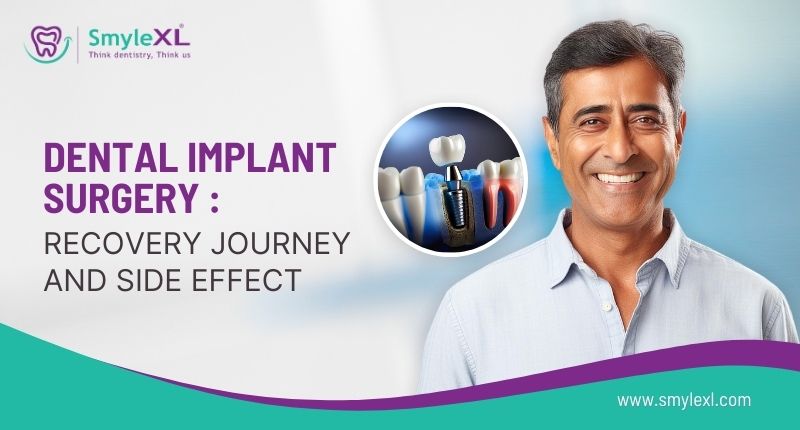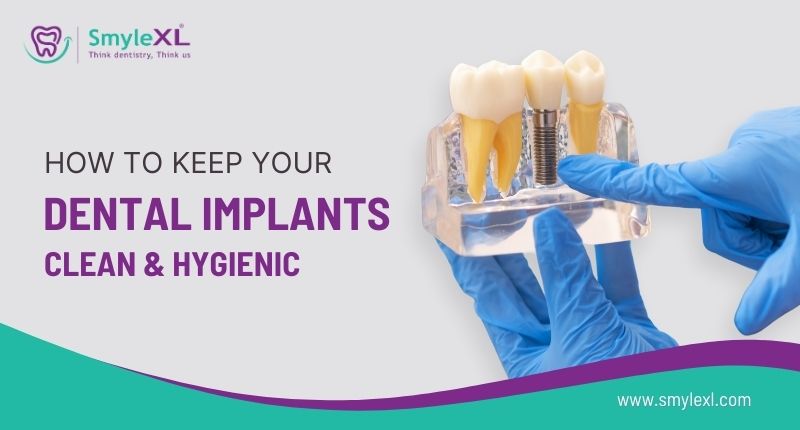Getting a dental implant is like giving your smile a second chance—one that’s stronger, better, and here to stay. But let’s be real, the process doesn’t end with the surgery. Recovery is where the magic truly happens. If you’re planning for dental implant treatment or have just had one, knowing what to expect can make the journey smoother than a chai session with your best friend.
What Happens After Dental Implant Surgery?
Once the surgery is over, you might feel a mix of excitement and curiosity—because who doesn’t love the idea of flaunting a perfect smile? But first, your mouth needs some Tender Loving Care.
Immediately after the surgery, you can expect:
Mild Discomfort: Some soreness and swelling are common but manageable. It’s like that feeling you get after eating overly spicy golgappas—temporary but worth it.
Bleeding: Light bleeding at the implant site is normal for the first 24 hours. Your dentist will likely advise biting down on gauze to control it.
Diet Changes: Your menu may look a little bland initially—think soups, dals, and curd. This is to ensure the implant heals properly.
The Recovery Timeline
Recovery is a journey, not a race. It varies from person to person, but here’s a general idea of what to expect:
1. First 24 Hours
Rest is your mantra. Avoid strenuous activities, and if you’re tempted to check WhatsApp or attend a meeting, remember you deserve the break.
2. First Week
Swelling and bruising may peak during this time. Ice packs and prescribed medication will be your best friends. By the end of the week, most discomfort subsides.
3. Next Few Months
This is when the implant fuses with your jawbone (osseointegration). It’s a slow but essential process, like waiting for cricket season finals—it’s all about patience for the big win.
Regular follow-ups with your dentist ensure the implant is healing properly and sets the stage for the permanent crown.
Side Effects: What’s Normal and What’s Not
It’s natural to experience some side effects, but knowing what’s normal can keep unnecessary worry at bay.
Normal Side Effects
1. Swelling, bruising, and tenderness.
2. Mild discomfort that can be managed with pain relievers.
3. Temporary numbness in the surrounding area.
When to Call Your Dentist
1. Persistent pain or swelling beyond a week.
2. Signs of infection like fever or foul-smelling discharge.
3. Difficulty in chewing or unusual sensitivity.
A reliable clinic that offers dental implant treatment will guide you through every step and ensure these side effects are minimal.
Tips for a Smooth Recovery
Here’s how to ace your post-surgery recovery like a pro:
Follow Instructions: If your dentist says no to pani puri for a while, they mean it. Stick to soft foods and avoid hard or crunchy items.
Stay Hygienic: Gently rinse your mouth with warm salt water to keep the implant site clean. But don’t overdo it—your gums need rest too.
Quit Smoking: If you needed another reason to give up cigarettes, here it is. Smoking can slow down healing and increase the risk of implant failure.
The Cost vs. Confidence Debate
Many people hesitate about getting implants due to concerns about dental implant treatment cost. But when you think about the lifetime value—a confident smile, improved chewing, and better oral health—it’s an investment worth every rupee.
And if budget is an issue, several clinics offer flexible payment options. After all, why should financial constraints hold you back from smiling freely?
A dental implant recovery journey might seem daunting initially, but with the right care, it becomes a story of triumph. Whether you’re considering dental implant treatment or are already on the path, remember that every step brings you closer to a strong, beautiful smile.
For more information about the dental implant treatment, book an appointment with our expert at SmyleXL Dental Clinic.










